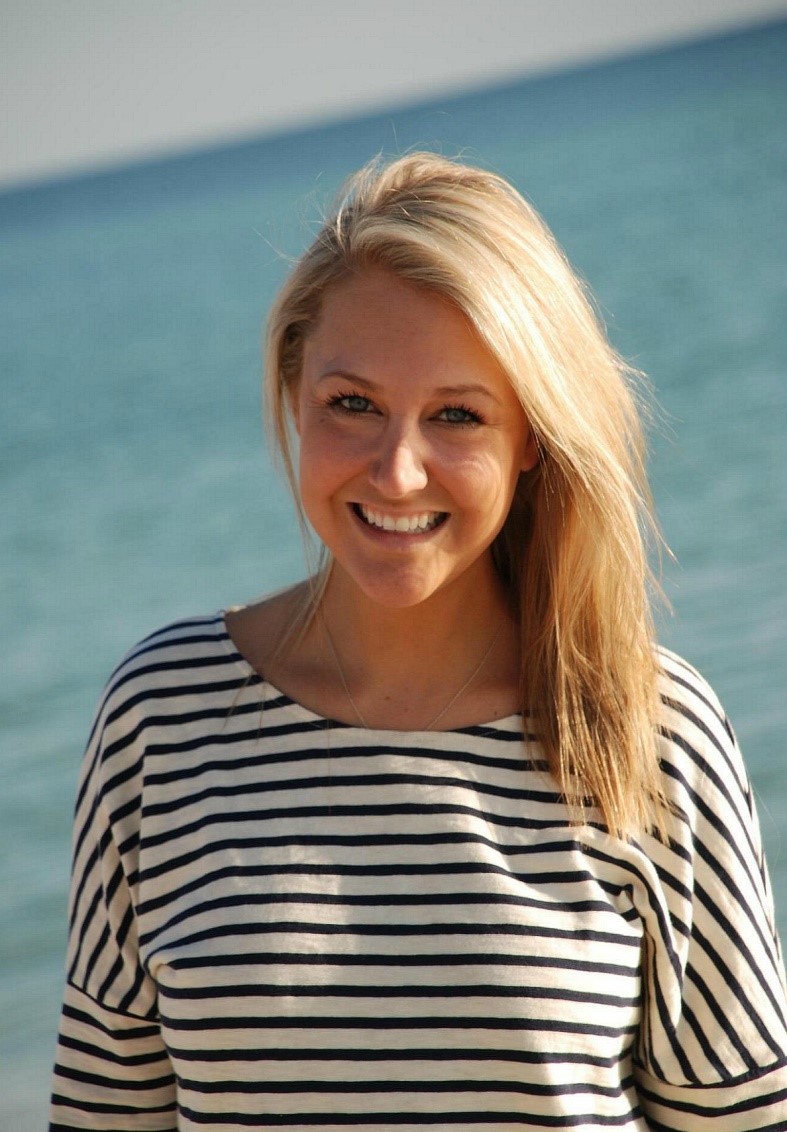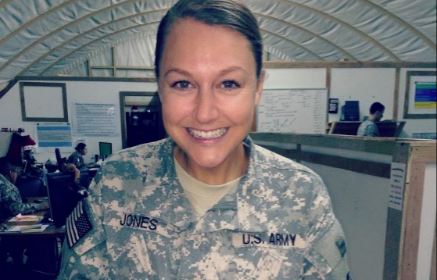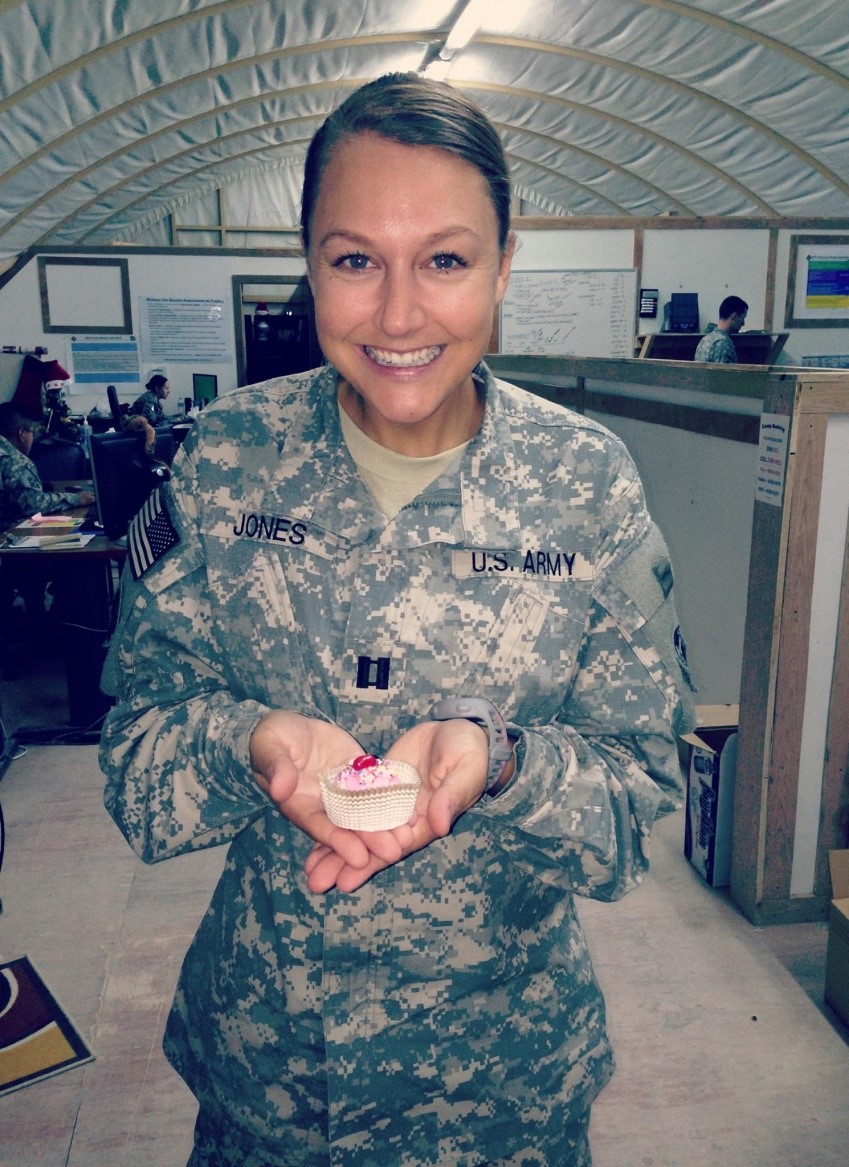Brooke’s Prequel
Brooke Jones-Chinetti has always been a big believer in the notion of “if you are passionate about something you will work really hard at it.” This is a concept that has pushed her to accomplish her many goals that often times seemed bigger than herself. Brooke was a dedicated tennis player throughout her childhood, and was lucky enough to travel all over the world to play the sport she loved. After high school she went to West Point, which at the time (2005) was ranked the number one school in the country. She explained that she chose West Point because it was a triple threat in her opinion: “It clearly was academically challenging, something I was definitely looking for. I also got the opportunity to compete at a D1 school and play college tennis. Most importantly, I was given the opportunity to be introduced to a completely different environment from the one I grew up in and to serve our country, something that was absolutely bigger than myself”.
work really hard at it.” This is a concept that has pushed her to accomplish her many goals that often times seemed bigger than herself. Brooke was a dedicated tennis player throughout her childhood, and was lucky enough to travel all over the world to play the sport she loved. After high school she went to West Point, which at the time (2005) was ranked the number one school in the country. She explained that she chose West Point because it was a triple threat in her opinion: “It clearly was academically challenging, something I was definitely looking for. I also got the opportunity to compete at a D1 school and play college tennis. Most importantly, I was given the opportunity to be introduced to a completely different environment from the one I grew up in and to serve our country, something that was absolutely bigger than myself”.
After college, Brooke served in the military for six years, culminating her time in the Army as a Captain. She worked mainly for HR during her service in which she was deployed twice to the Middle East. During one of her deployments she was able to be a part of the Women in Combat Arms (WICA) Pilot Program, which was the first plan created by the military that paved the way for integrating women into any branch of the military. She continued on to say, “The Army was really fantastic to me! I loved my time there! I also met my husband there. I found that after a while I really wanted some stability in my life, so we [my husband and I] transitioned out together. If I didn’t meet him I probably would still be in active duty.”
Her Sequel
Brooke believes there are 3 key things that will revolutionize the way women interact with each other, not only in a professional setting, but also in everyday life:
1) Make an effort towards helping one other. “I remember thinking of how I am so tired of having to compete against other women. Women empowering women is a win-win. I think that if more women see other women being helpful, people will want to help you because you appear to be a guide that wants to help women. Start forcing yourself to make that effort to extend that hand. It’s kind of tough and unnatural for women who are especially type A. It’s simply a dynamic we’ve created as women. So, why not make sure all women have shots at making it and help each other get there?”
2) Build an atmosphere and network that is uplifting. “We have to recognize that there is more than one spot for successful women.”
3) Make sure to share your knowledge with others. “I think a lot of people are afraid that if you share information with others they might be more successful than you. Don’t hoard information. It’s important to share the wealth in order to help each other grow.”
Brooke stressed, “I’m a firm believer that women empowering other women is revolutionary! The day that I recognized this and began applying it to my life, it changed for the better. I’m not saying to not try hard and to not be competitive with women. What I’m trying to get at is don’t tear each other down to build yourself up. When you see someone struggling extend a hand to help out.”
She continued on to discuss her transition from military to civilian life stating, “After I left the Army, I found myself only talking to men in corporate America as mentors. I would talk to guys who are older business professionals. I felt it would have been really nice to have a sounding board to ask questions like ‘Did you feel you were pushy when negotiating your salary?’ I found myself grasping at straws searching for answers from women like me who shared the same experiences.” This feeling of “grasping at straws” is what ultimately inspired her to create Your Sequel.
There are roughly 200,000 veterans that transition from the military each year. There are statistics that prove women typically have a harder time transitioning than men do. A lot of them face similar challenges that Brooke encountered, such as not knowing who to talk to or who to network with. Brooke mentioned that, “The military is such a strong community where everyone has each other’s back, when you leave that, you can feel very vulnerable.”
The main goal of Your Sequel is to help women veterans make smart connections in fields that they have interest in entering in order to make their transition from the military to a professional setting easier. This organization helps women veterans connect with successful women in order to help them get informed and make an educated decision when choosing a career.
“We start off by asking the veterans questions like ‘Who are you?’, ‘What did you study in college?’, ‘What did you do in the military?’, and ‘What do you think you want to do in the future?’ Based on their answer to that last question, we hook them up with someone in their desired field. For example, if the woman wanted to get into finance or consulting, we are going to try to set them up with a female mentor who is at the top of their game in that industry. Once we set them up, we kind of leave it to the women to stay connected and build relationships with the individuals we introduce them to. We also have the women rate their experiences afterwards for feedback.”
JPMorgan Chase & Co.
Brooke also works as Director of Operations for Military and Veteran Affairs at JPMorgan. “In a way, this overlaps with my work with Your Sequel. I not only get to help women veterans, but all veterans with J.P Morgan. I want to help empower vets and help them move along. I feel very fortunate; it’s a great organization to work for!”
Contributor: Ally Massimi




Comments (0)